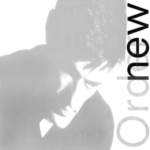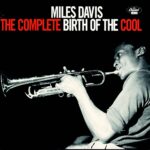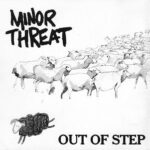 Keith Jarrett’s “The Köln Concert,” recorded live in 1975, is a seminal album that stands as a landmark in the world of jazz and improvised music. The album captures Jarrett’s mesmerizing solo piano performance at the Opera House in Cologne, Germany, where he showcased his incredible improvisational skills, sensitivity, and emotional depth.
Keith Jarrett’s “The Köln Concert,” recorded live in 1975, is a seminal album that stands as a landmark in the world of jazz and improvised music. The album captures Jarrett’s mesmerizing solo piano performance at the Opera House in Cologne, Germany, where he showcased his incredible improvisational skills, sensitivity, and emotional depth.
The album unfolds with the delicate and introspective “Part I,” where Jarrett weaves a tapestry of beautiful melodies and harmonies. His improvisations evolve organically, starting with sparse notes and gradually building into intricate and captivating musical phrases. The subtle shifts in dynamics, the use of space, and Jarrett’s precise touch create an atmosphere of intimacy and vulnerability.
One of the defining moments of the album comes with “Part II,” where Jarrett introduces a repetitive and hypnotic ostinato pattern that serves as a foundation for his improvisations. The pulsating rhythm provides a sense of structure while allowing Jarrett to explore a vast range of melodic variations and harmonic possibilities. The interplay between the recurring motif and Jarrett’s spontaneous expressions is mesmerizing, creating a sense of constant forward motion and musical discovery.
Another standout track is “Part III,” where Jarrett delves into more upbeat and energetic territories. He introduces lively rhythmic patterns and explores the full range of the piano, from delicate high notes to thunderous bass lines. The improvisations are filled with rhythmic complexity, melodic inventiveness, and a sense of joyful exploration. Jarrett’s ability to create captivating narratives and build tension and release within his improvisations is truly remarkable.
“The Köln Concert” is not only a display of Jarrett’s extraordinary technical prowess but also a testament to his deep musicality and emotional connection. Each note carries a wealth of emotion, ranging from introspection to exuberance, from introspective ballads to moments of explosive energy. Jarrett’s ability to communicate his innermost feelings through his improvisations is nothing short of extraordinary.
The album’s production quality captures the essence of the live performance, with the audience’s presence and occasional sounds serving as a reminder of the unique atmosphere of the concert. The recording captures the raw and organic nature of Jarrett’s playing, allowing the listener to fully immerse themselves in the intimate and captivating world he creates.
In conclusion, Keith Jarrett’s “The Köln Concert” is a landmark recording that showcases the depth and brilliance of his improvisational skills. It is a testament to the power of spontaneous creativity and the transformative nature of live performance. Jarrett’s ability to create captivating narratives, his sensitivity to dynamics, and his unparalleled technical command make this album a timeless masterpiece. “The Köln Concert” remains a definitive example of solo piano improvisation and a seminal work in the world of jazz and improvised music.
This post has already been read 322 times!

























